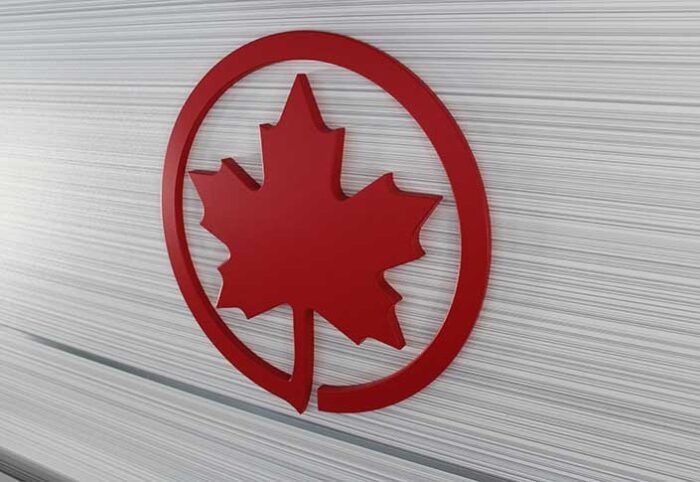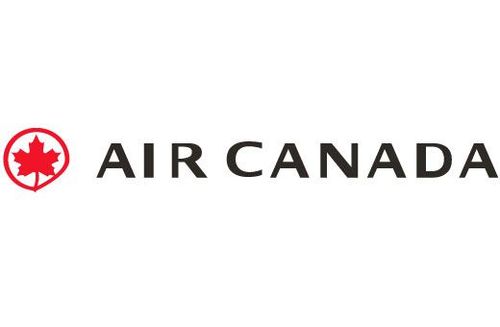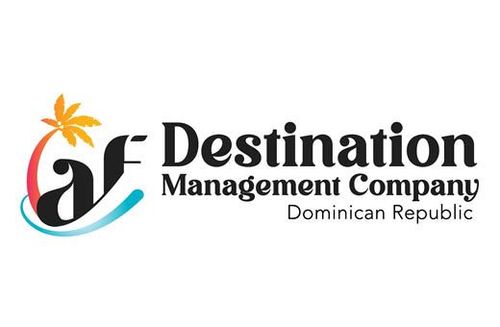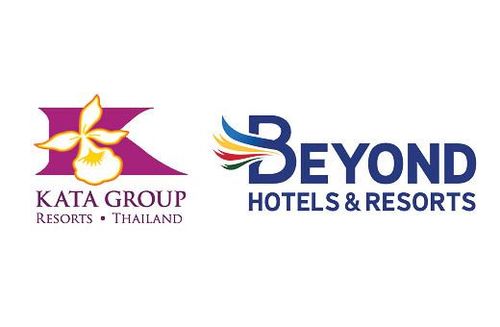Where travel agents earn, learn and save!
News / Air Canada reports 2020 Annual Results
Total revenues declined 70 per cent due to COVID-19 and travel restrictions

February 12 - Total revenues of $5.833 billion in 2020 declined $13.298 billion or 70 per cent from 2019. The airline reported 2020 negative EBITDA(1) (excluding special items) or (earnings before interest, taxes, depreciation and amortization) of $2.043 billion compared to 2019 EBITDA of $3.636 billion. Air Canada reported an operating loss of $3.776 billion in 2020 compared to operating income of $1.650 billion in 2019. Unrestricted liquidity amounted to $8.013 billion at December 31, 2020.
Air Canada has implemented or will be implementing the following measures as part of its COVID-19 Mitigation and Recovery Plan:
Customer Service and Safety
Air Canada makes safety its first consideration in all that it does and has been continually updating its health and safety policies and procedures for travellers and employees in airports, onboard aircraft and in other workplaces to account for new information about COVID-19 as it becomes available. This includes a requirement for customers and crew to wear a protective face covering, as well as enhanced protective personal equipment for airport agents and crews, the reinforcement of safe practices such as frequent handwashing and collaborating with the Canadian federal government to screen passengers to help determine fitness for flying.• To underscore its commitment to customer and employee safety, Air Canada introduced Air Canada CleanCare+. This program is designed to reduce the risk of exposure to COVID-19 through such measures as enhanced aircraft grooming, mandatory preflight customer temperature checks and facial coverings, in addition to required health questionnaires and providing all customers with care kits for hand cleaning and hygiene. In January 2021, Air Canada received the Diamond certification from the Airline Passenger Experience Association (APEX) Health Safety powered by SimpliFlying. The Diamond Certification recognized the airline for achieving hospital-grade levels of biosecurity across multiple passenger touchpoints. The certification program aims to create a global standard for health and safety measures focused on airline customers
• Air Canada has introduced numerous touchless processes throughout the customer journey, including: TouchFree Bag Check for flights departing from Canadian airports, the ability to order food directly in Maple Leaf Lounges from smartphones and tablets, touchless self-entry to the Air Canada Café for when it reopens, and provisioning of all newspapers and magazines in digital format via PressReader
• Air Canada has undertaken several medical collaborations to continue advancing biosafety across its business, including with Cleveland Clinic Canada in Toronto, a renowned global healthcare leader, to provide additional science-based evidence in the ongoing COVID-19 response; with Ottawa-based Spartan Bioscience to explore rapid COVID-19 testing in an aviation environment; and, since early 2019, with Toronto-based BlueDot, a company that monitors infecti diseases globally in real time to provide accurate, relevant information to make business and safety decisions quickly
• Air Canada partnered with McMaster HealthLabs and the Greater Toronto Airports Authority in a study of international travellers arriving at Toronto Pearson International Airport. Preliminary results have indicated that testing can provide an effective, responsible alternative to facilitate the safe relaxation of quarantines. Final results are currently being analyzed and are expected to be published by McMaster HealthLabs and the University of Toronto during the first quarter of 2021
• Air Canada is finalizing an initial order of Abbott’s ID NOW COVID-19 rapid response tests as part of its ongoing evaluation of COVID-19 testing technology and protocols, one of the first private sector companies to do so
• Air Canada recently conducted a trial with the application of COVID-19 contact tracing technology in its workplace using the Bluetooth enabled TraceSCAN app and wearable technology developed by Canadian-based Facedrive Inc. Following an initial pilot, the use of this technology is being further expanded on a trial basis in other Air Canada workplaces
• Air Canada is collaborating with Shoppers Drug Mart to provide Air Canada customers with the opportunity to take a pre-departure COVID-19 PCR test to support compliance with international travel requirements. The test is now available to travellers in Ontario, Alberta, and British Columbia
• Air Canada is working with the Creative Destruction Labs rapid testing consortium on rapid antigen screening in the workplace starting with pilots in Toronto and Montreal
• Air Canada is the first Canadian airline to offer its customers the safety and convenience of a new boarding option utilizing facial biometrics. The technology is now available for customers departing from San Francisco International Airport. The airline plans to expand biometric boarding options to other U.S. airports in the near future and is currently exploring options which could be viable at Canadian airports
Capacity and Route Network
As a result of the impact of the COVID-19 pandemic and related travel restrictions, Air Canada reduced ASM capacity by 67 per cent in 2020 compared to 2019 and plans to reduce first quarter 2021 capacity approximately 85 per cent compared to the first quarter of 2019 (also represents a reduction of approximately 83 per cent compared to the first quarter of 2020). The airline will continue to dynamically adjust capacity and take other measures as required to adjust for demand, including as a result of health warnings, travel restrictions, quarantines, border closures and market and regulatory conditions.
Canadian travel and quarantine restrictions include the following:
• Travel bans prohibiting all foreign nationals from entering Canada by air under provisions of the Aeronautics Act and Quarantine Act under two different orders (one for United States arrivals and one for all other international arrivals), subject to limited exceptions (for example, for family members, compassionate reasons, and international students)
• 14–day quarantine requirements under the Quarantine Act for all travellers entering Canada, including Canadians
• Interprovincial restrictions on travel and/or quarantines in numerous provinces, including Nova Scotia, New Brunswick, Prince Edward Island, Newfoundland, Manitoba, and in the three territories – for all persons including Canadians
• The Government of Canada also has a global travel advisory in place advising Canadians to avoid all nonessential travel outside of Canada
• Effective January 7, 2021, the Government of Canada requires airline passengers five years of age or older entering Canada from an international destination to provide, prior to boarding a flight, a negative COVID-19 PCR test, subject to limited exceptions (for example, airline crews re-entering Canada and aircraft maintenance engineers). Despite a negative COVID-19 PCR test, all customers entering Canada are required to complete the full mandatory 14-day quarantine
• On January 29, 2021, the Canadian Government announced the following additional restrictions and measures:
• Effective February 4, 2021, all scheduled international passenger flights into Canada must land at the following four airports: Montréal-Trudeau International Airport, Toronto Pearson International Airport, Calgary International Airport, and Vancouver International Airport
• All Canadian airlines have suspended flight to Mexico and the Caribbean between February 1 and April 30, 2021
• All air travellers arriving in Canada, with limited exceptions, will shortly be required to take a COVID-19 PCR test upon arrival and quarantine at a Government of Canada-approved hotel at their own expense while they await their results. If the result of the COVID-19 PCR test is negative, travellers will be able to complete the 14-day mandatory quarantine at a suitable location of their choice that allows them to observe their quarantine. If the COVID-19 PCR result is positive, travellers will have to complete the mandatory 14-day quarantine at a Government of Canada-supervised facility
Financing and Liquidity
Air Canada concluded a series of financing transactions in 2020, totalling $6.780 billion, to support the implementation of its planned mitigation and recovery measures in response to the COVID-19 pandemic and provide it with additional operational flexibility• In March 2020, Air Canada drew down its US$600 million and $200 million revolving credit facilities for aggregate net proceeds of $1.027 billion
• In June 2020, Air Canada concluded an underwritten public offering of 35,420,000 Class A variable voting shares and/or Class B voting shares of Air Canada at a price of $16.25 per share, for aggregate proceeds of $576 million, and a concurrent private placement of convertible senior unsecured notes due 2025 for aggregate proceeds of US$748 million ($1.011 billion)
• In June 2020, Air Canada completed a private offering of $840 million aggregate principal amount of 9.00 per cent Second Lien Secured Notes due 2024, which were sold at 98 per cent of par
• In June 2020, Air Canada completed a private offering of one tranche of Class C Enhanced Equipment Trust Certificates (“EETCs”) with a combined aggregate face amount of approximately US$316 million ($426 million), which were sold at 95.002 per cent of par
• In September 2020, Air Canada concluded a private offering of two tranches of EETCs, the proceeds of which were used to purchase equipment notes issued by Air Canada and secured by three Boeing 787-9 aircraft, three Boeing 777-300ER aircraft, one Boeing 777-200LR and nine Airbus A321-200 aircraft. The two tranches of certificates have a combined aggregate face amount of US$553 million ($740 million) and a weighted average interest rate of 5.73 per cent. Air Canada used the proceeds from this financing together with cash on hand to repay in full the US$600 million ($803 million) 364-day term loan originally put in place in April 2020 and discussed in Air Canada’s second quarter 2020 MD&A
• In September 2020, Air Canada concluded a committed secured facility totaling $788 million to finance the purchase of the first 18 Airbus A220 aircraft. As aircraft are financed under this facility, the bridge financing of $788 million put in place in April 2020 (and discussed in Air Canada’s second quarter 2020 MD&A) will be repaid concurrently. At December 31, 2020, there were 15 Airbus A220 aircraft financed under this facility with the corresponding bridge financing repaid
• In October 2020, Air Canada completed sale and leaseback transactions for nine Boeing 737 MAX 8 aircraft for total proceeds of US$365 million ($485 million). The nine aircraft were delivered to Air Canada in the past three years
• In December 2020, Air Canada concluded an underwritten public offering of 35,420,000 Class A variable voting shares and/or Class B voting shares of Air Canada at a price of $24 per share, for aggregate proceeds of $850 million. In January 2021, the underwriters exercised their over-allotment option to purchase an additional 2,587,000 shares at a price of $24 per share, for gross proceeds of $62 million
• Air Canada’s unencumbered asset pool (excluding the value of Aeroplan, Air Canada Vacations and Air Canada Cargo) amounted to approximately $1.7 billion at December 31, 2020. As part of Air Canada’s ongoing efforts to maintain adequate liquidity levels, additional financing arrangements continue to be assessed and may be pursued
• Air Canada suspended share purchases under its Normal Course Issuer Bid in early March 2020 and did not renew its issuer bid upon its expiry in the second quarter of 2020
Cost Reduction and Capital Reduction and Deferral Program
• Air Canada completed a company-wide cost reduction and capital reduction and deferral program for 2020 which reached $1.7 billion. On a capacity reduction of 67 per cent, 2020 operating expenses decreased $7.872 billion or 45 per cent from 2019, reflecting the significant progress made on both managing variable costs and reducing fixed expenses. Air Canada continues to seek additional opportunities for cost reduction and cash preservation• Air Canada completed a workforce reduction of approximately 20,000 employees, representing more than 50 per cent of its workforce. This was achieved through layoffs, terminations of employment, voluntary separations, early retirements, and special leaves. In January 2021, Air Canada announced another workforce reduction of approximately 1,700 employees. The airline is working with its unions on mitigation programs
• Air Canada adopted the Canada Emergency Wage Subsidy (CEWS) for most of its workforce effective March 15, 2020. The net benefit for employee wages under this program in 2020 was $554 million, which has supported the airline in retaining a workforce well in excess of current capacity levels. In September 2020, the Government of Canada announced an extension of the program to June 2021. Air Canada intends to continue its participation in the CEWS program, subject to meeting the eligibility requirements
• Air Canada is permanently retiring 79 older aircraft from its fleet – consisting of its less efficient Boeing 767, Airbus A319 and Embraer 190 aircraft. Their retirement will reduce Air Canada’s cost structure, simplify the airline’s overall fleet, and lower its carbon footprint
• Air Canada concluded an amendment to the purchase agreement for Airbus A220-300 aircraft which became effective in early November 2020 and pursuant to which Air Canada has deferred 18 aircraft deliveries over 2021 and 2022. Also, Air Canada will not be purchasing the last 12 Airbus A220 aircraft from its original order of 45 aircraft
• In early November 2020, Air Canada also amended its agreement with Boeing to cancel 10 Boeing 737 MAX 8 aircraft deliveries from its firm order of 50 aircraft and to defer its remaining 16 aircraft deliveries over the late 2021 to 2023 period
• Through its fleet restructuring and other capital reduction initiatives, Air Canada lowered its planned capital expenditures by approximately $3.0 billion for the 2020 to 2023 period compared to its projected capital expenditures at the end of 2019
Proposed Acquisition of TRANSAT A.T.
On October 10, 2020, Air Canada announced amendments to the acquisition transaction with Transat A.T. Inc. ("Transat") previously disclosed. The acquisition agreement provides for the acquisition by Air Canada of all the shares of Transat for $5.00 per share, payable at the option of Transat shareholders in cash or shares of Air Canada at a fixed exchange ratio of 0.2862 Air Canada share for each Transat share (representing a price for the Air Canada shares of $17.47). However, the transaction remains subject to certain conditions including, notably, the ongoing approval process of regulatory authorities.Under the acquisition agreement with Transat, closing of the transaction was to be completed no later than February 15, 2021; it may be extended at any time by agreement of the parties and remains in force unless terminated by either of them.
For more information, please visit aircanada.com
More Travel News:
Transat announces approval of its arrangement with Air Canada by Canadian Authorities
Flair to fly to 18 cities by August
Restrictions to mobility have contributed to the UK suffering greater GDP losses than its European neighbours, says WTTC
The Bahamas announces “From the Bahamas With Love” Virtual Romance Expo









